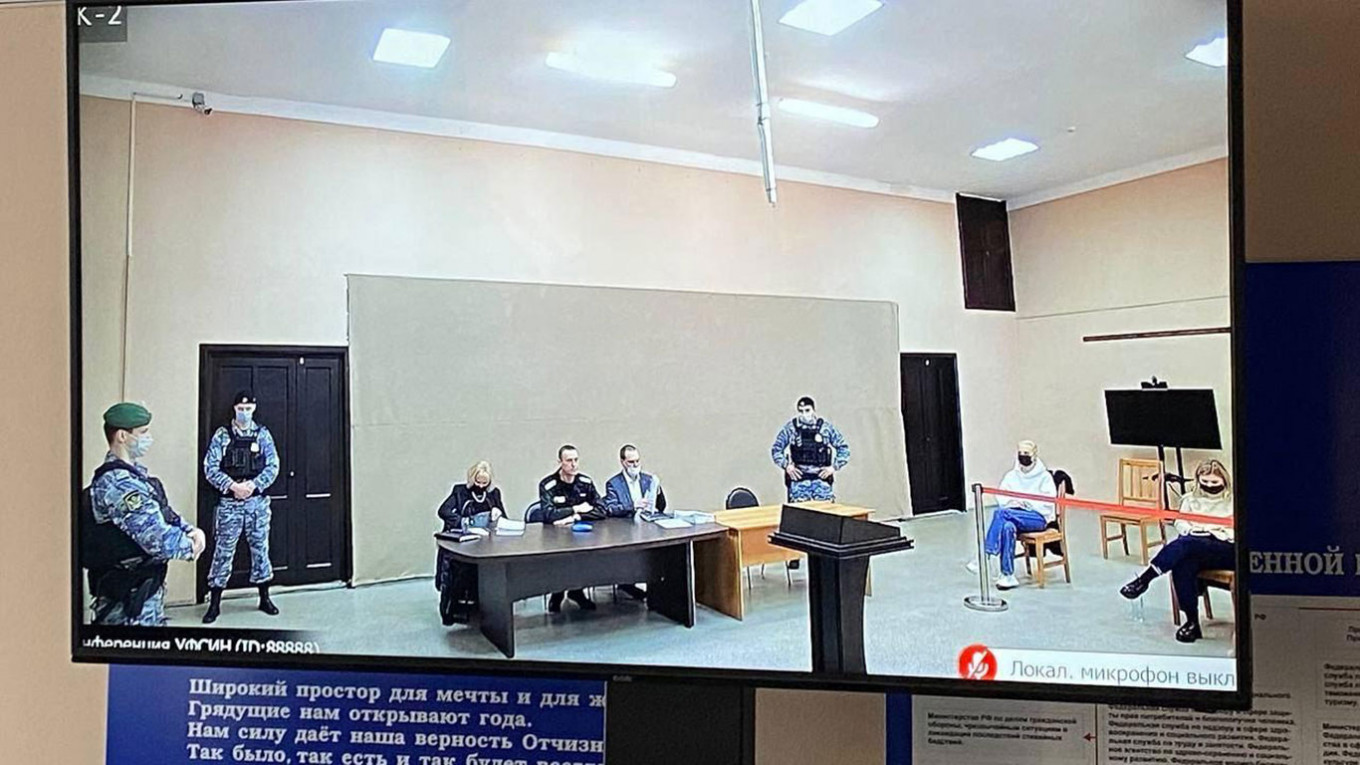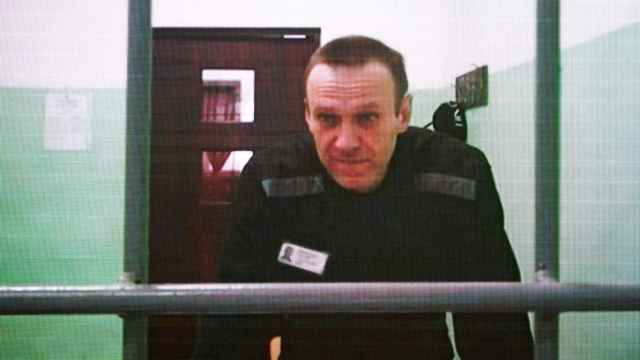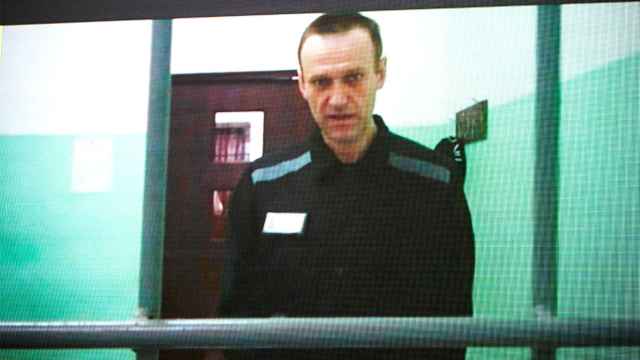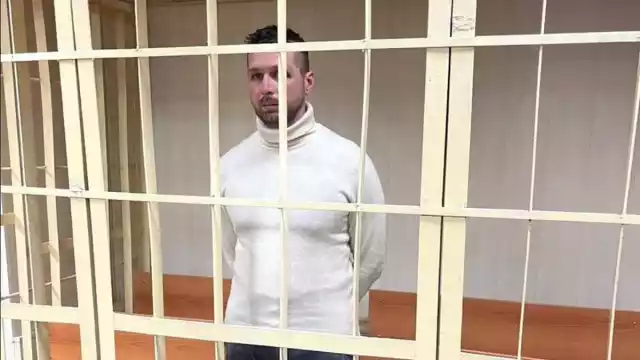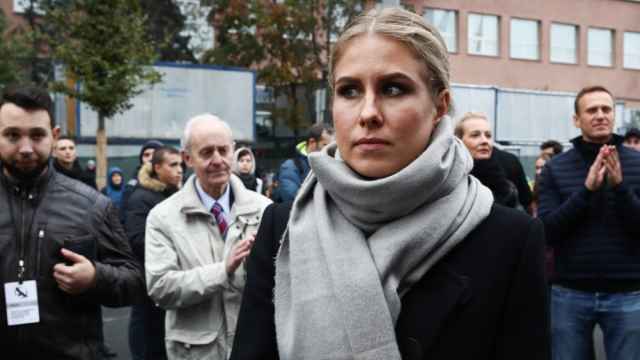Jailed Kremlin critic Alexei Navalny went on trial Tuesday in his maximum-security prison outside Moscow on new charges that could see his jail time extended by up to 15 years.
Navalny was in February 2021 ordered to serve two years and eight months in prison for breaching his parole terms while he was hospitalized in Germany for nerve agent poisoning that he blames on the Kremlin.
While recovering abroad, the opposition leader was charged with “stealing” 356 million rubles ($4.7 million) donated to his since-dismantled Anti-Corruption Foundation.
Russian authorities declared the foundation — which has published explosive video investigations into high-level corruption — a banned “extremist” organization last summer.
Navalny’s trial on charges of fraud and contempt of court got underway Tuesday in his penal colony in the town of Pokrov 100 kilometers east of Moscow.
Videos shared by journalists showed Navalny wearing a prison uniform inside the makeshift courtroom, flanked by lawyers, guards and his wife Yulia. The so-called “visiting session” is presided over by Moscow’s Lefortovo District Court judge Margarita Kotova.
“The familiar prisoner ‘cage’ [for defendants] is missing in court because the entire court is in a cage,” Navalny’s close aide Leonid Volkov tweeted.
Navalny, 45, faces up to 15 years in prison on four counts of fraud and two counts of contempt of court during a defamation trial last year.
Supporters, who accuse the authorities of attempting to close the trial to the public, say a verdict may be delivered within a week.
Navalny has faced a slew of criminal charges since returning to Russia in January 2021 from Germany, where he had spent months recovering from a poisoning attack that Western scientists identified as the Soviet-designed Novichok nerve agent.
Navalny was filmed hugging Yulia during attempts to fix audio issues at the start of the trial.
A Message from The Moscow Times:
Dear readers,
We are facing unprecedented challenges. Russia's Prosecutor General's Office has designated The Moscow Times as an "undesirable" organization, criminalizing our work and putting our staff at risk of prosecution. This follows our earlier unjust labeling as a "foreign agent."
These actions are direct attempts to silence independent journalism in Russia. The authorities claim our work "discredits the decisions of the Russian leadership." We see things differently: we strive to provide accurate, unbiased reporting on Russia.
We, the journalists of The Moscow Times, refuse to be silenced. But to continue our work, we need your help.
Your support, no matter how small, makes a world of difference. If you can, please support us monthly starting from just $2. It's quick to set up, and every contribution makes a significant impact.
By supporting The Moscow Times, you're defending open, independent journalism in the face of repression. Thank you for standing with us.
Remind me later.


